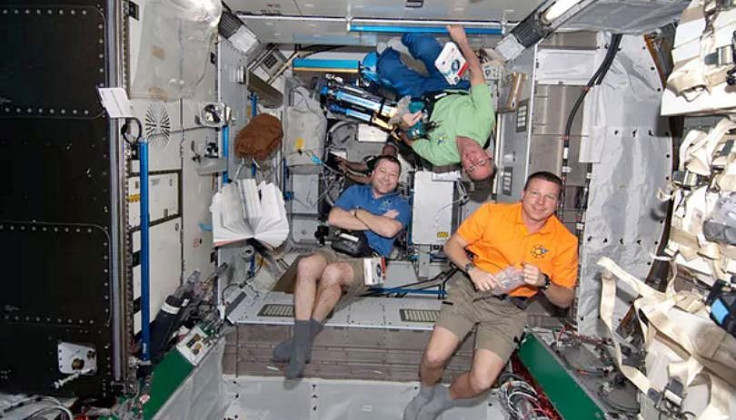ISS Is A ‘Dirty’ Outpost Colonized By Microbes, Study Says

Who would have thought that the International Space Station (ISS) orbiting in airless and irradiated outer space some 400 km above us would be infested with bacteria and fungi?
Well, it is and a study published in the journal Microbiome shows these microbes might eventually pose a danger to the health of astronauts whose altered immunity might one day render them more vulnerable to diseases, especially on long voyages.
Since its construction in 1998, the ISS has been the temporary space home to more than 220 astronauts from many nations. As was expected, each of these astronauts brought their own microbiome, which is an ecological community found in and on all multicellular organisms. A microbiota includes bacteria, archaea, protists, fungi and viruses.
NASA scientists discovered the microbiomes on the ISS were similar to those found in public buildings and offices on Earth, which is astounding since most microbes are vulnerable to the cold and radiation in space.
The published study is the first to provide a comprehensive catalogue of the bacteria and fungi infesting the interior surfaces in closed space systems such as the ISS.
Surprisingly, microbes thrive on the ISS due to a unique combination of microgravity, radiation and tightly confined living space. In addition, the absence of competition from other microbes normally found on the ground allows those on the ISS to multiply rapidly.
“The ISS is a hermetically sealed closed system, subjected to microgravity, radiation, elevated carbon dioxide and the recirculation of air through HEPA filters, and is considered an ‘extreme environment,’” Dr. Kasthuri Venkateswaran, a senior research scientist at the NASA Jet Propulsion Laboratory and one of the study’s authors, said.
He said some microbes are known to survive and even thrive in extreme environments. Microbes that are present on the ISS could have been there since 1998, while others may be introduced every time new astronauts or payloads arrive.
He added that the influence of the indoor microbiome on human health becomes more important for astronauts during flights due to altered immunity associated with space flight and the lack of sophisticated medical interventions that are available on Earth.
“In light of an upcoming new era of human expansion in the Universe, such as future space travel to Mars, the microbiome of the closed space environment needs to be examined thoroughly to identify the types of microorganisms that can accumulate in this unique environment, how long they persist and survive, and their impact on human health and spacecraft infrastructure,” Dr. Venkateswaran said.
The researchers said the study can be used to help improve safety measures that meet NASA requirements for deep space human habitation such as those that will be built on the Moon and Mars.



























